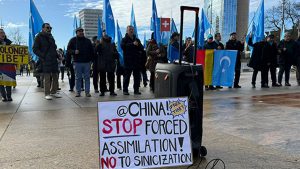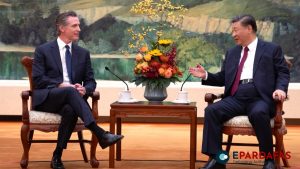
Nepali Congress Rejects Loans Under China’s BRI, Pushes for Grant Assistance Ahead of PM Oli’s Visit to Beijing

The ruling Nepali Congress (NC) has firmly reiterated its opposition to accepting loan assistance under China’s Belt and Road Initiative (BRI), advocating instead for grant-based cooperation. This stance was emphasized by party spokesperson Dr. Prakash Sharan Mahat on Friday, ahead of Prime Minister KP Sharma Oli’s anticipated visit to China.
Speaking to the press at the Federal Parliament Building, Dr. Mahat stressed the importance of securing grants for infrastructure projects like tunnels and roads under the BRI framework, pointing to Nepal’s escalating debt burden as a critical concern.
Firm Stance Against Loans
“The Congress has no ambivalence regarding the BRI,” said Dr. Mahat. “We are only saying that loans cannot be taken now. The BRI agreement, signed when I was Foreign Minister, is based on investment, connectivity, and technical assistance. However, we believe such connectivity projects should be implemented through grants. Our debt levels have soared, and taking more loans is not viable.”
Dr. Mahat also criticized China’s delay in fulfilling grant commitments made in previous agreements. “The Chinese government has not implemented the issue of providing grants for many years. What is the point of discussing loans now?” he remarked, urging China to honor its earlier promises.
Concerns Over Strategic Implications
Beyond economic considerations, Dr. Mahat raised questions about broader implications of the BRI framework. He underscored the need to avoid entangling Nepal in strategic or security-related agendas tied to the initiative.
“Are other strategic security aspects being included within one block? We believe there should not be such considerations,” he stated, reaffirming Nepal’s need to maintain balanced international relations.
BRI and PM Oli’s China Visit
China has reportedly proposed that an implementation plan for the BRI be signed during Prime Minister Oli’s upcoming visit. However, the Nepali Congress remains firm in its demand that the plan focus solely on grant-based funding, as initially agreed.
This position highlights growing concerns within Nepal about the long-term economic and political implications of BRI-related loans, which have drawn criticism in other countries for leading to unsustainable debt levels and geopolitical dependency on China.
The Way Forward
Dr. Mahat’s remarks reflect the ruling party’s broader strategy to seek sustainable development solutions while safeguarding Nepal’s financial and strategic autonomy.
“We believe the grant should be implemented. If that happens, the BRI is done. But the loan? That is not an option,” he concluded.
As Prime Minister Oli prepares for his visit to China, the debate over the BRI underscores the complex dynamics of Nepal’s foreign policy, balancing economic opportunities with the imperative to avoid excessive reliance on external loans.












Comments